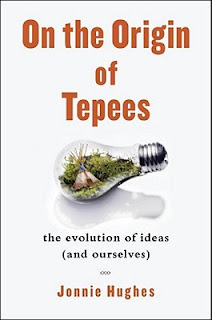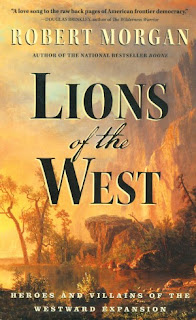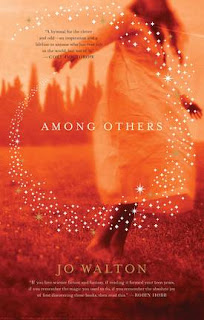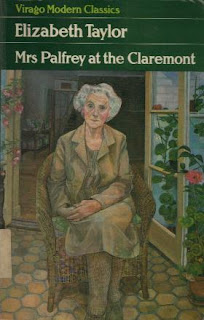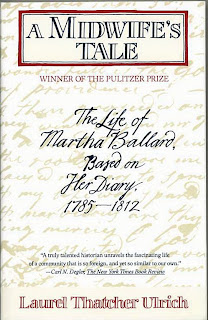
Laurel Thatcher Ulrich is a pretty amazing person. I cannot describe to you just how much research she did before presenting the world with the gift that is A Midwife's Tale: The Life of Martha Ballard, Based on her Diary 1785-1812, but I assure you that it was a RIDICULOUS amount. Ulrich can take an entry that says, "Calld from Mrs Howard to Mr McMasters to see their son William who is very low. Tarried there this night" into this fantastic commentary about social class, Revolutionary era medicine, town gossip and so, so much more. It is absolutely amazing. I feel like Martha Ballard wrote her diary just for Laurel Thatcher Ulrich to read and find mysteries to be unlocked.
A Midwife's Tale is about Martha Ballard's life in Hallowell, Maine in the period following the Revolutionary War. Ballard practiced as as midwife for the town, and she was very, very good at her job. She also kept a diary very consistently, every day, for many, many years. Until Laurel Thatcher Ulrich came along, no one really knew what to do with the diary. It is not exactly loaded with juicy details,as you can see from the snippet I shared above, but it is written very consistently. Ulrich decided not to look at the diary in a vacuum. She read it and then annotated her research with other diaries from the same town, judicial records from the region, land grant information, local history, and all sorts of other fantastic things. The result is a rich, nuanced, and highly readable history of not just one woman or one town, but of an entire network of people who lived and worked together in a highly structured society.

